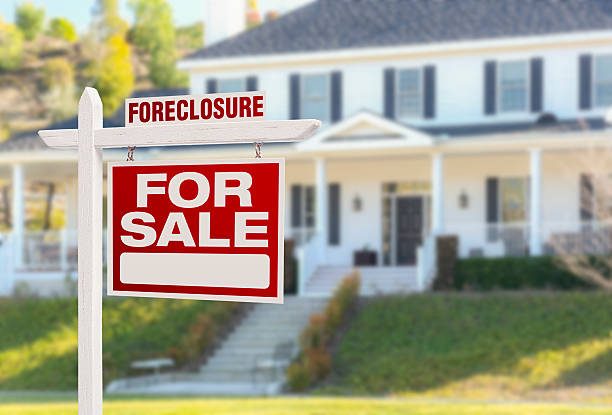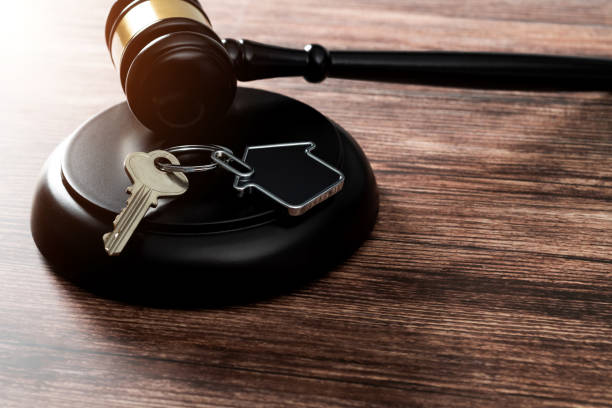Foreclosure is every homeowner’s worst nightmare. Nearly five million Canadians have mortgages. 12,000 Canadians have mortgages in arrears, opening the possibility of foreclosure.
It is important to understand your rights in foreclosure or power of sale. Failing to understand your rights can cost you your home. This is why you should work with a mortgage broker who specializes in judicial foreclosure and power of sales.
Prepare for foreclosure with the right knowledge. Here is a quick guide.

Foreclosure Explained
The process of a lender selling your home varies from province to province. It usually occurs when a borrower fails to remit their payments to the lender on time.
Foreclosure is a legal process. It occurs in stages, and you as a mortgagee have plenty of opportunities to defend yourself. Hiring an educated mortgage broker to help is crucial.
Your mortgage lender starts the foreclosure process with a lawsuit. They file a document called the Statement of Claim, which lists the terms of the mortgage and your debt. Your lender must provide you with a copy of the Statement.
When you receive it, you are allowed to file a reply. You have 20 days to do so.
If you don’t reply, the lender will tell the court you are “in default.” The court will presume you have no defense to your lender’s claim. You will have to leave your home.
You can reply with a Statement of Defense or a Demand for Notice. A Statement of Defense allows you to challenge your lender’s claims in court. A Demand for Notice lets you agree with your lender’s claims so you can negotiate with them.
Once you reply, the lender will file more statements with the court. They eventually apply for a remedy, asking the court to help them recoup their money. At this point, a redemption order is generally granted giving the homeowner a set amount of time to pay the mortgage off. The longer it takes to resolve your problem, the more costs you will incur and the more likely you are to lose your home.
If you pay off the mortgage, the process ends. If you cannot meet the court’s deadlines, the court will issue either an Order for Foreclosure or an Order for Sale. The lender or a new buyer will take control of the property, at which point you must vacate the property.

Power of Sale
Power of sale is distinct from foreclosure. Foreclosure allows the lender to take possession of your home. Some sell the home later, while others hold onto the home for some time.
The power of sale grants the lender the power to evict current homeowners. They then sell the property to recover their money. The title remains in your name, but the lender has the final say in how your home is sold.
The power of sale begins when the lender files a Notice of Sale after you default on your loan. You have an abbreviated redemption period of 35 days. You must pay off your mortgage, or you will have to leave.
Provincial Differences
Foreclosure laws vary depending on your province. Ontario provides the power of sale without judicial oversight, creating a speedy foreclosure process. You can sell your property on your own initiative to pay back your loan.
You and your lender have to work together to sell your property. Your lender needs to advertise your property and post “For Sale” signs.
British Columbia requires judicial oversight when a property is sold. Your lender must send a demand letter to you outlining sales terms. The court allows you to reinstate the mortgage and gives you a longer redemption period to pay it off.
Your lender cannot interfere with your right to sell the house. But in British Columbia, your lender can get possession of your house through a court order. This is only in rare circumstances during which the mortgagee refuses to sell the property.
Can You Stop a Foreclosure?
You can stop foreclosure in a number of ways. You will need help.
Before any court appearance, get legal representation. Hire a lawyer who knows foreclosure and housing law.
During your reply to your lender, you can articulate your position. You can explain the circumstances of your mortgage, including that you paid off your debt. If the court sees that you have paid off your debt, they will end the foreclosure process right there.
You can negotiate with your lender to change the terms of your payments. You might be able to change your payment schedule or reduce the payments you need to make. Remain in contact with your lender during the whole foreclosure process.
Your best chance to stop foreclosure is to pay off your loans. If you need an extension of your redemption period, appeal to the court and your lender. But try to pay off everything on time, including penalties and fees.
Help in the form of a second mortgage or home equity loan can often help stop a foreclosure. An experienced mortgage broker can help arrange foreclosure financing options.
How to Avoid Foreclosure With Bad Credit
If you have bad credit, try to avoid taking out a second mortgage or loan. The bank will likely deny you, and you will waste time you could spend negotiating your terms. Go to a firm that specializes in giving loans to people with bad credit.
Talk to your lender about your credit situation. They can adjust the terms of your mortgage payments if they want. You can tap into assets and sell them off to pay your mortgage.
You can hire an attorney, even if you have bad credit. Use legal resources available to you to challenge your foreclosure.
How to Avoid Foreclosure and Keep Your Home
Foreclosure is difficult. You can simplify it once you know how it works.
Foreclosure starts in the court. You will receive a notification that your lender is moving against you. You have time to reply, then you have time to pay off your loan.
Provincial laws vary, but most cases progress into a power of sale. To stop a foreclosure, make a reply in court and negotiate with your lender. Get a second mortgage or loan to satisfy your first lender.
Go to the foreclosure relief experts. TurnedAway has more than 30 years of experience in helping clients.




